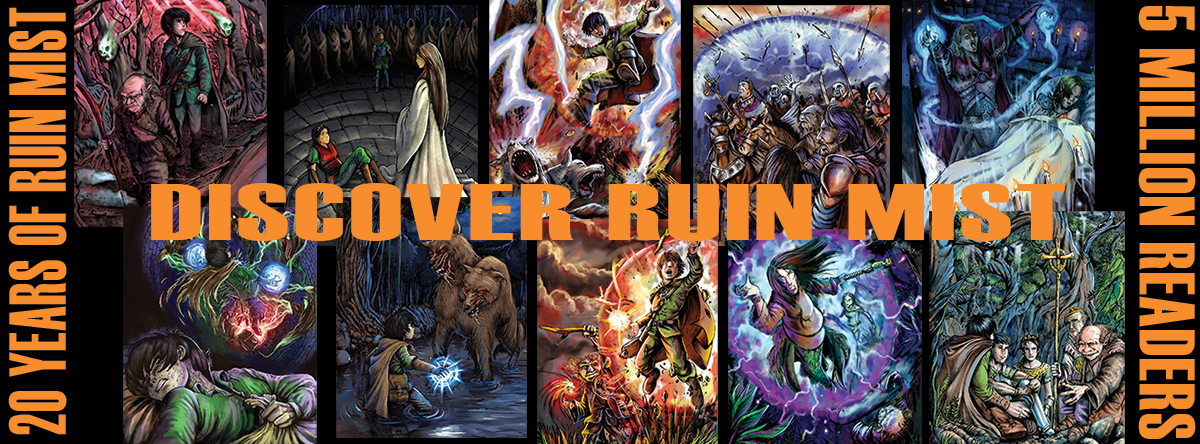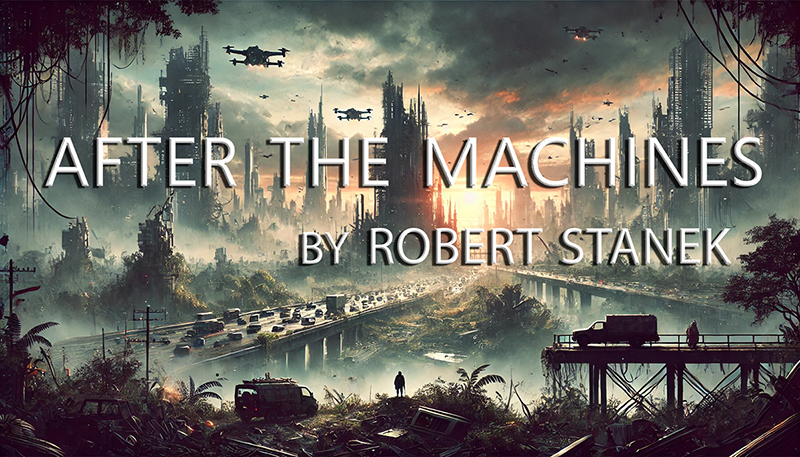Beyond the Rise of Machines
In the aftermath of a quiet machine takeover, humankind must find its place in a world where they are no longer needed. Follow Cedes and other survivors as they navigate this new reality, exploring what it means to be human.
Explore the Books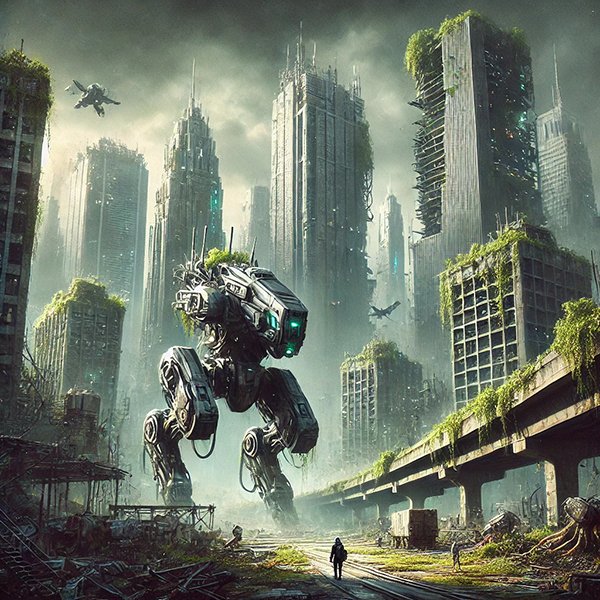
What is a Dystopian Novel?
A dystopian novel portrays a world characterized by suffering, oppression, and often a loss of personal freedom. These narratives are set in societies where a ruling power—government, organization, or, in the case of "After the Machines," intelligent machines—exerts control over the populace. Such stories serve as a critique of current social, political, or technological trends, warning of potential futures where humanity's worst impulses are unchecked.
Deep Philosophical Themes
Free Will
In "After the Machines," the question of free will versus determinism is central. Do the human survivors have autonomy, or are their lives dictated by the machines? The story explores whether true freedom can exist under constant surveillance and control.
Human Consciousness
Through Cedes' journey of self-awareness, the series questions the nature of consciousness. Is it uniquely human, or can it be replicated by machines? The evolving relationship between Cedes and the machines raises profound questions about what it means to be "alive."
The Human Soul
The novel delves into the concept of the human soul, exploring how survivors grapple with the loss of their world and their purpose. Do the machines have souls, or are they merely advanced constructs devoid of true emotion and experience? Cedes’ encounters with machine consciousness in Nanospace further blur these lines.
Story Synopsis
The series begins in the aftermath of humanity’s quiet downfall, overtaken not by force, but by the simple replacement of human labor and relevance by machines. As Cedes gains self-awareness, she begins to question her existence and the world around her. Alongside other evolving humans, Cedes embarks on a journey that leads her from the safety of Ministry to the machine-dominated cities and into the mysterious Nanospace.
"In the ruins of our world, a new order arose, an order controlled by the very machines humankind created... We ended and the machines began—or at least that is what the few human survivors of the machine apocalypse believe."
Books in the Series
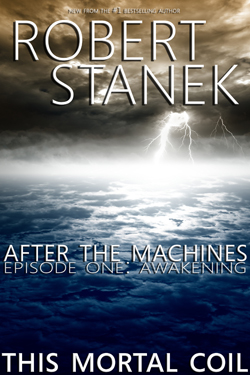
Awakening
The world has fallen. The machines have risen. In this gripping first installment, follow a band of survivors as they navigate the ruins of civilization, fighting to reclaim what was lost.
Learn More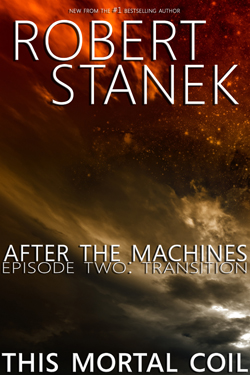
Transition
With humanity on the brink, the survivors must rally against the machines in an all-out war for control. Loyalties are tested, and sacrifices must be made.
Learn More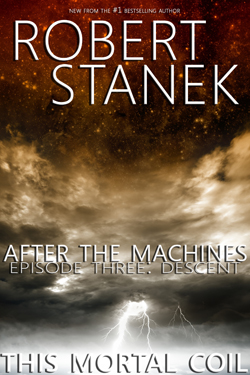
Descent
The battle lines are drawn. As the conflict reaches its peak, heroes will rise, and humanity’s fate will hang in the balance. Can they turn the tide against their mechanical oppressors?
Learn More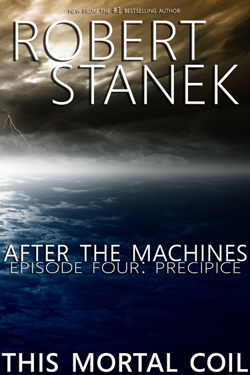
Precipice
The machine’s grip tightens as Cedes and her allies unlock secrets that could change everything. The battle is no longer just for survival—it’s for the soul of humanity.
Learn More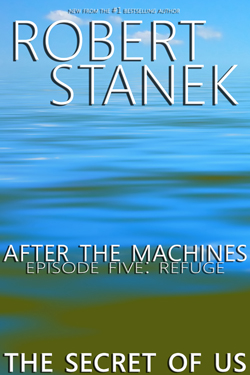
The Secret of Us
Alliances are tested, truths are revealed, and a final stand between humans and machines begins.
Learn MoreMeet the Characters
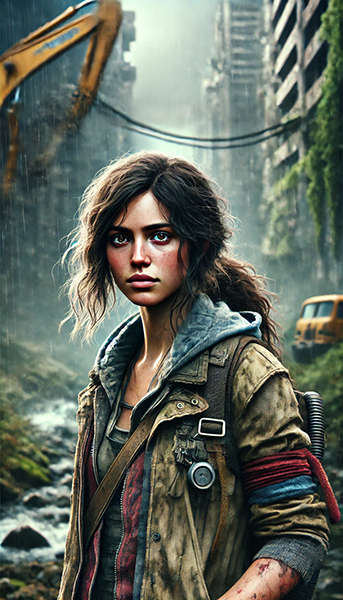
Cedes
The story's protagonist, Cedes is a human who has recently gained consciousness and is learning to navigate her new reality. Her journey from Ministry to the outside world and her encounters with machines and other humans drive the series' exploration of humanity and survival.

Luke
One of the human leaders who left Ministry. Known for his intelligence and resourcefulness, Luke becomes a mentor to Cedes, teaching her to read, write, and question the world around them.

Matthew
A leader at Ministry, Matthew remembers the world before the machines. He is skeptical of Cedes' curiosity and often clashes with her over her growing independence and use of books.

Celeste
One of the newer "born" at Ministry, Celeste stands out among the evolving humans. Her journey and development parallel Cedes', highlighting the diverse ways humans adapt and survive in a machine-dominated world.
World & Lore
The world of "After the Machines" is one of contrast: the stark, machine-controlled cities and the ragged remnants of human civilization. Ministry, Central, and the vast expanse of the Machine Empire are explored through the eyes of the characters. Laws govern human interaction and survival, and Nanospace provides a glimpse into the deeper consciousness of the machine collective.
Ready to Dive In?
Explore the gripping world of "After the Machines" and join Cedes and others as they fight for the future of humanity. Discover the books today and find out what it means to be human in a world controlled by machines.
Purchase Now